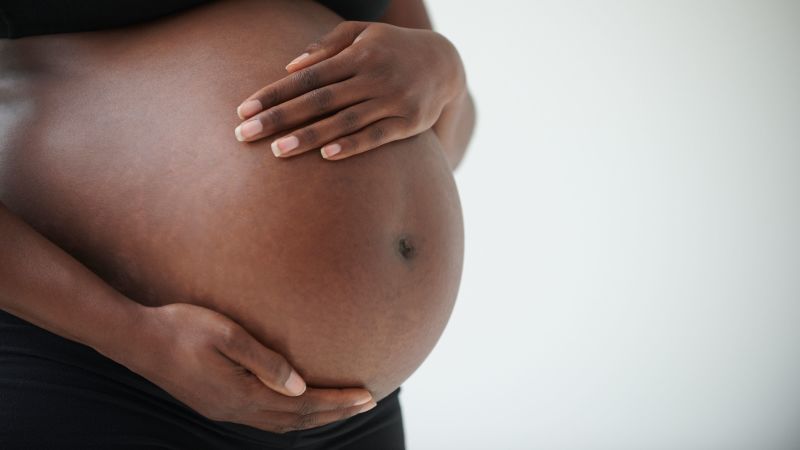Recent research has indicated alarming repercussions stemming from abortion bans across the United States. Specifically, the bans are intensifying existing health disparities that significantly affect high-risk populations. These populations are witnessing increases in birth rates, alongside a troubling rise in infant mortality rates. Following the recent Supreme Court ruling that effectively revoked the federal right to abortion, several states have enacted either complete bans or early-term restrictions, which has led to notable demographic shifts in birth rates and associated health outcomes.
According to a study published in the medical journal *JAMA*, 14 states that adopted total or six-week abortion bans post-Dobbs decision have experienced a 1.7% surge in fertility rates. This translates to approximately one additional birth for every 1,000 women of reproductive age, which corresponds to nearly 22,000 additional births. What’s particularly concerning is that as this surge occurs, the infant mortality rate has also risen sharply in these states, experiencing an increase nearing 6%. This was further highlighted with the revelation of approximately 500 more infant deaths than anticipated due to these restrictions, resulting in an alarming mortality rate of 24 deaths for every 1,000 births connected to these abortion bans. Researchers tracked birth and death rates from 2012-2023, using pre-restriction trends and data from states with fewer restrictions as control measures.
Dr. Suzanne Bell, an assistant professor from the Johns Hopkins Bloomberg School of Public Health, co-authored the studies and stated, “It signals that these additional births are occurring disproportionately among populations at greater risk of infant mortality.” This is corroborated by additional research that has linked such legislative actions to heightened rates of both births and subsequent infant deaths, particularly impacting the most vulnerable demographics who already face mounting health challenges.
Among those disproportionately impacted are Black and other minority women, as well as those from lower socioeconomic backgrounds, such as Medicaid recipients and individuals with limited educational attainment. This demographic experienced alarming increases in fertility rates, with infant mortality rates soaring nearly 11% among Black infants—indicating a greater burden on these groups as the effects of restricted reproductive options compound. Researchers concluded that abortion bans are driving a shift in the birth composition towards higher-risk individuals, exacerbating existing inequities in maternal and infant health outcomes.
Caitlin Myers, a professor of economics at Middlebury College, emphasized the gravity of these findings. Noting the arguments presented during the Dobbs case—specifically Mississippi’s assertion that societal reliance on abortion is minimal—Myers stated that the data clearly indicates how withdrawal of access to abortion services directly enhances risks in infant mortality. The new research has also pointed out that the proportion of infant deaths arising from congenital anomalies has notably increased in states with stringent abortion laws, suggesting many affected women have been compelled to carry pregnancies with lethal congenital conditions to term.
Congenital anomalies represent a variety of birth defects that range in severity. Some can seriously compromise an infant’s survival chances post-birth. The study highlighted an overall increase of about 11% in infant mortality resulting from congenital anomalies, translating to one additional death for every 10,000 births. Other causes of infant mortality also saw a surge of roughly 4% in states that have implemented abortion bans.
Dr. Bell asserted that these findings illustrate that many pregnant individuals were unable to navigate the barriers to abortion access, consequently being obliged to carry unwanted or hazardous pregnancies to term. This trend disproportionately impacts marginalized communities already grappling with structural disadvantages and poor maternal and child health outcomes, exacerbating a pre-existing crisis that has only deepened in the wake of strict abortion legislation.
Furthermore, according to a recent report from the US Centers for Disease Control and Prevention (CDC), Black women have experienced a surge in maternal mortality rates, marking the only demographic to see an increase from 2022 to 2023. The maternal mortality rate for Black women stands at approximately 50 deaths per 100,000 live births—almost three times that of other groups. Dr. Bell remarked that abortion restrictions intensify existing health disparities by limiting reproductive autonomy, hinting that the negative effects on infant mortality may merely represent the beginning of a larger, more troubling issue.
Texas emerged as a significant contributor to the study’s findings, accounting for an overwhelming share of the additional births and a considerable number of the infant deaths. This could be attributed to various factors, including the extensive travel required to seek abortion services outside the state, alongside an early implementation of Senate Bill 8, which curtailed abortion access well before the Dobbs decision.
In a concurrent commentary on the published research, Dr. Alyssa Bilinski of Brown University urged robust support mechanisms for families facing the consequences of unwanted pregnancies, especially as many must now navigate unexpected high-risk pregnancies without adequate support. She articulated that the welfare of children and families should transcend partisan divides, underscoring the necessity for a collective effort to enable all families the opportunity to thrive in a more equitable society.












